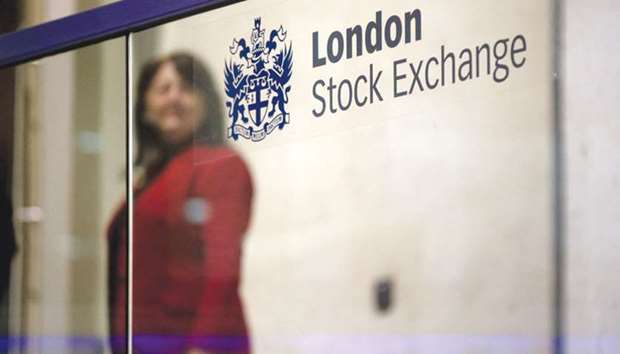Europe’s main stock markets traded mixed yesterday as Wall Street fell upon its return from a long holiday weekend dominated by North Korea’s weekend nuclear test.
In London, the FTSE 100 closed down 0.5% at 7,372.92 points; Frankfurt — DAX 30 ended up 0.2% at 12,123.71 points and Paris — CAC 40 fell 0.3% at 5,086.56 points yesterday.
The US ambassador to the United Nations Nikki Haley told an emergency Security Council meeting on Monday that Pyongyang was “begging for war” and called for the “strongest possible measures” against Kim Jong-Un’s regime.
The test, which North Korea says was of a hydrogen bomb, came less than a week after it fired a rocket over Japan, while Seoul said there were signs the reclusive state was preparing to launch another.
“US stocks are lower in early action, returning to action following the long holiday weekend, with global sentiment exacerbated by news over the weekend that North Korea detonated a hydrogen bomb and may be preparing another ICBM test,” said analysts at Charles Schwab brokerage.
Stocks in Asia and Europe had fallen Monday in response to the unfolding drama, but investors took a more sanguine approach on Tuesday, dealers said.
Asian equities nevertheless struggled yesterday and safe-haven yen and gold held gains as traders mulled the latest North Korea test that has prompted warnings of US military action.
In Europe, early gains in Paris and London were swept away in the afternoon.
“European equity markets are largely lower on the day as the morning bounce back from Monday’s decline ran out of steam,” said market analyst David Madden at CMC Markets UK.
“Investors aren’t in a major panic about the North Korean situation but it is certainly on their minds,” he added.
Frankfurt managed to stay in the green, even though its gains also tapered away during afternoon trading.
“Germany’s DAX is flirting with a bullish breakout on autos-friendly rhetoric from Merkel...” said Mike Van Dulken, head of market research at Accendo Markets.
Chancellor Angela Merkel on Monday pledged a billion euros to help German cities fight air pollution caused by dirty diesel cars, while coming out solidly against cities banning the vehicles which would hurt automakers.
London equities were penalised by disappointing data.
Britain’s services sector grew at the slowest pace in almost a year in August amid uncertainty over Brexit, a survey showed yesterday.
The purchasing manager’s index for services fell to 53.2 in August from 53.8 in July, data compiler IHS Markit revealed.
That undershot market expectations of a fall to 53.5, though it remained above the 50 figure which indicates expansion.
The service sector, which accounts for around 80% of British economic activity, grew at the slowest pace since September 2016.
Oil prices shot higher.
“WTI and Brent Crude oil have jumped today as some US refineries are back in operation, and in turn demand for oil is ticking up,” said Madden at CMC Markets UK.
“Traders were quick to sell WTI in the immediate aftermath of tropical storm Harvey, and now we are seeing a reverse of that move,” he added.

A visitor passes a sign inside the London Stock Exchange. The FTSE 100 closed down 0.5% at 7,372.92 points yesterday.
